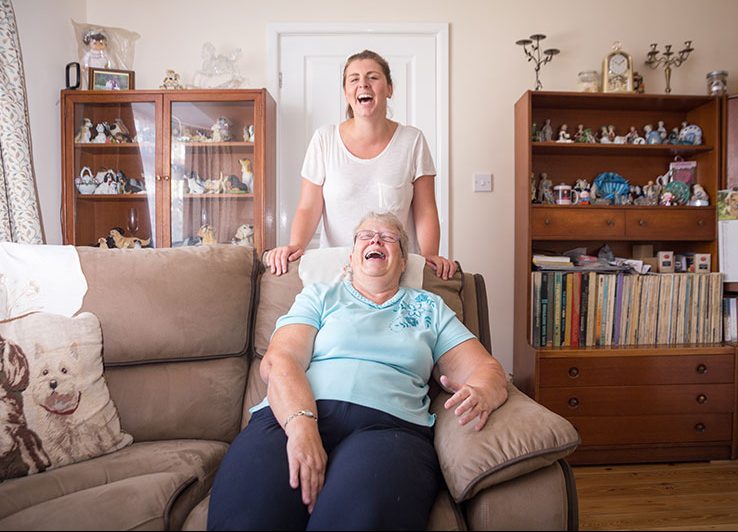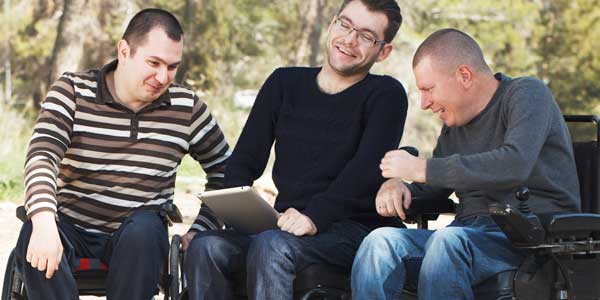Self-managing, values-led,
neighbourhood-based teams
A better way of working, for everyone

The purpose of Wellbeing Teams is to do whatever we can to help people live well and be part of their community.
Wellbeing Teams are a radical new model for delivering care and support within communities, and are rated as Outstanding by CQC.
Wellbeing Teams are a radical new model for delivering care and support within communities. They are:
- small, neighbourhood teams
- self-managing
- values-led at every step
- focussed on co-production, supporting people to make decisions about their life and support
- committed to wellbeing, both of the people they support and team members
We are driven by our values:
Compassion: Actively hearing and sensing one another’s thoughts and feelings, being kind, and finding empathetic ways to support individuals and each other to achieve positive outcomes.
Responsibility: Initiating ways of working that dignify everyone, at the same time holding self and others accountable for actions and attitudes in relation to our shared purpose and values.
Collaboration: Cooperating with others by sharing ideas and insights to find ways of achieving positive change, both individually and collectively.
Curiosity: Feeling energised by discovering new insights, learning, finding answers to questions and wondering at the world.
Creativity: Capacity and ingenuity to respond appropriately to seize opportunities without needing to be directed or instructed by others.
Flourishing: Creating the conditions for thriving that reflect aspirations, remove barriers to connection and enable people to choose their own way forward.
Wellbeing Teams integrate three key elements of care and support to create true wellbeing:
- Ensuring that people are safe and well
- Supporting people to do more of what matters to them
- Helping people to stay connected to others and their community
All of these differences – and more – are delivered by set ways of working, which we have developed and are available in our Wellbeing Teams Handbook and other documents. We have also created a number of ways to learn about creating Wellbeing Teams. Click here to learn more.
Here is an overview of 8 ways that Wellbeing Teams are supported to work effectively in a self-managed way:
How Wellbeing Teams work
Like traditional care services, Wellbeing Teams provide help with things such as washing, dressing, or medication; but, crucially, they also support people to do more of what matters to them and to stay connected in their communities. And although Wellbeing Teams have started in home care settings, our approach works within GP surgeries, hospitals, mental health teams and more. It’s a model that lends itself to a wide range of health and social care settings where a radical rethink is required to create sustainable approaches that can lead to better wellbeing for everyone.
Wellbeing Teams use the ‘Support Sequence’ to help people to think about different ways to be supported or make changes in their life. This includes self-care, technology, aids and adaptations, support from family, friends, being part of what is happening in the community, as well as services and paid support. Wellbeing Teams are part of Circle Family, providing a monthly social calendar of events and opportunities shaped by its members.
We’re excited about creating a future where people are supported to live well, leading active, connected lives in their communities. Explore the pages below to learn more about us.


